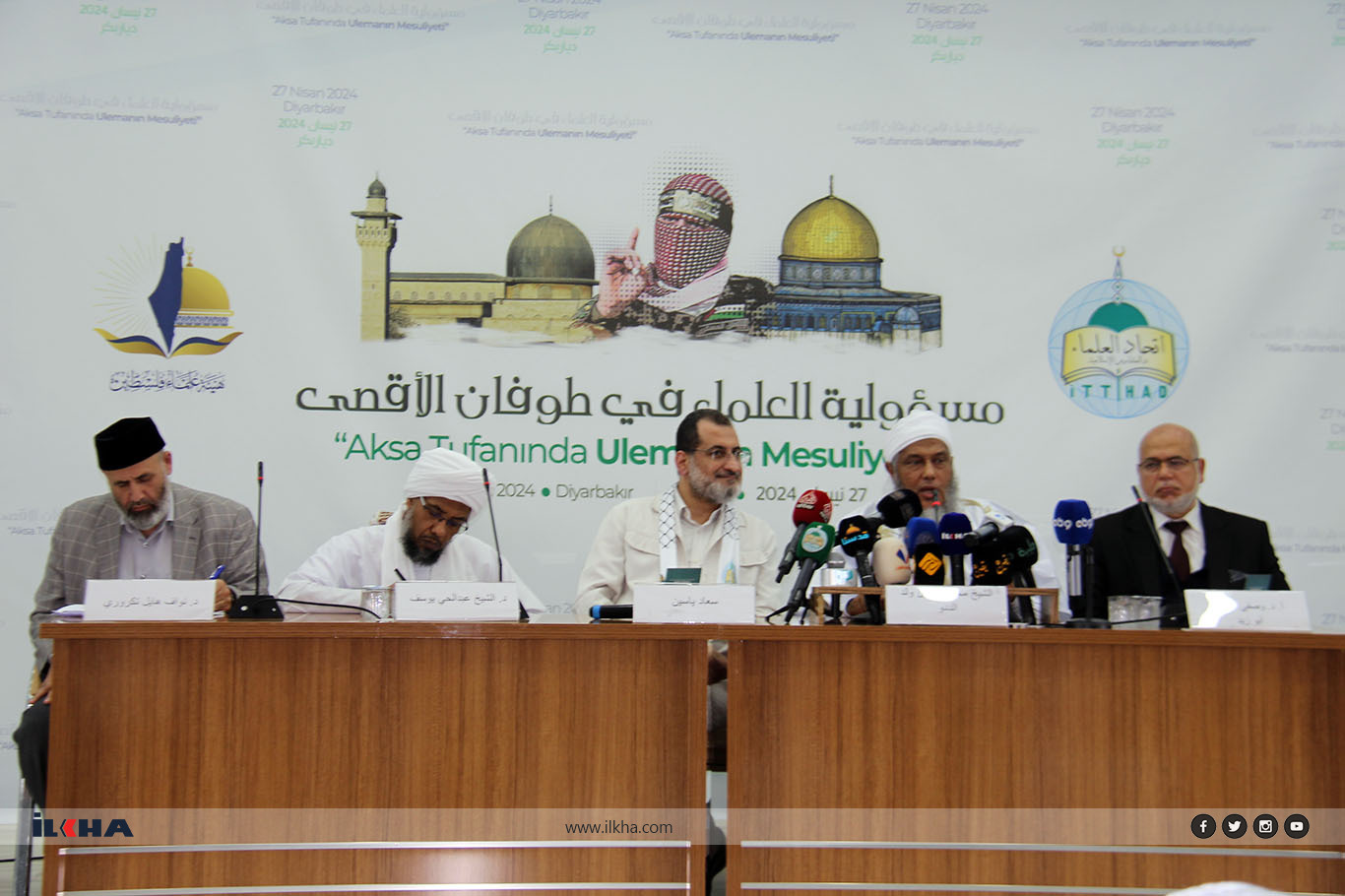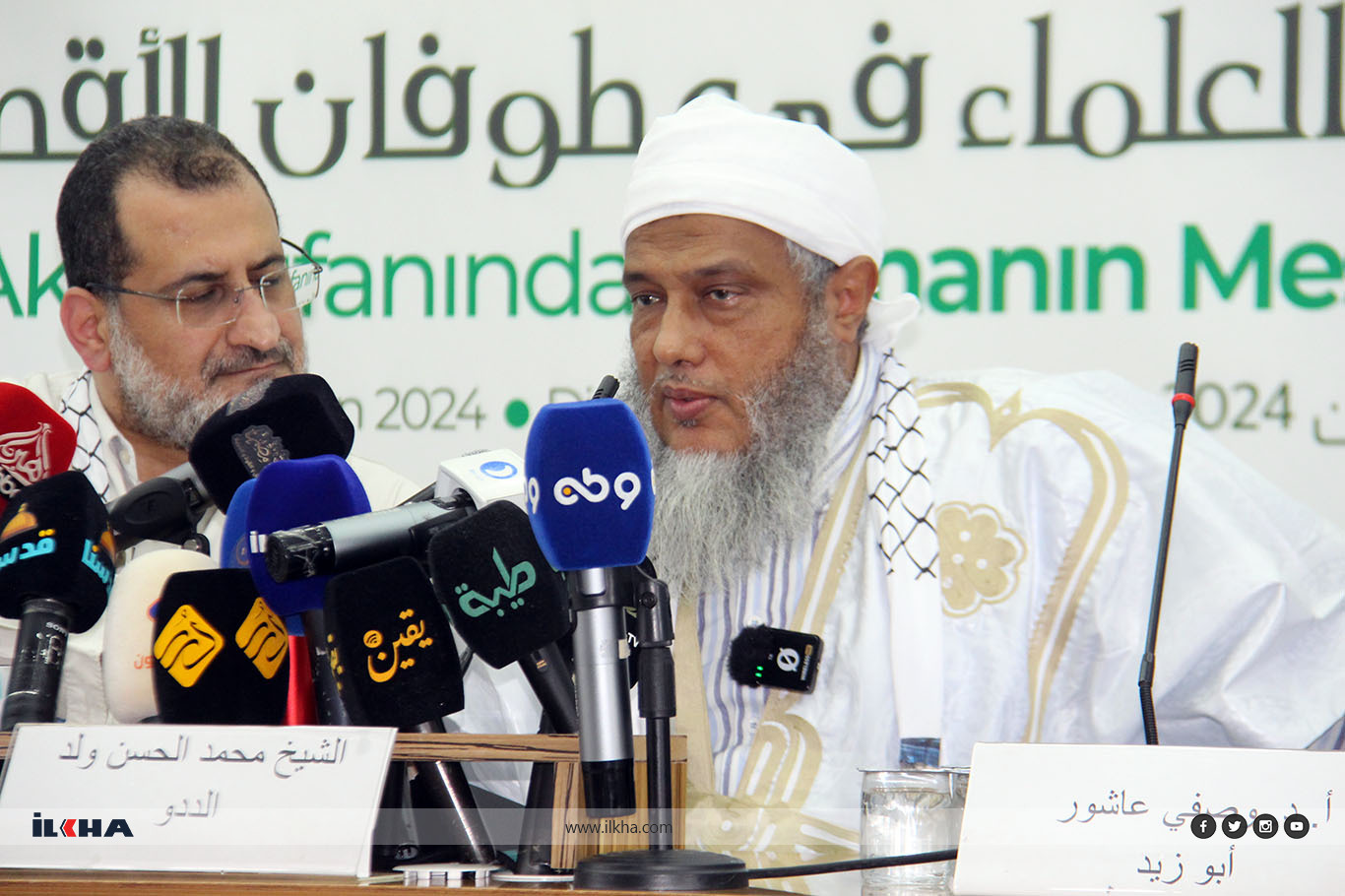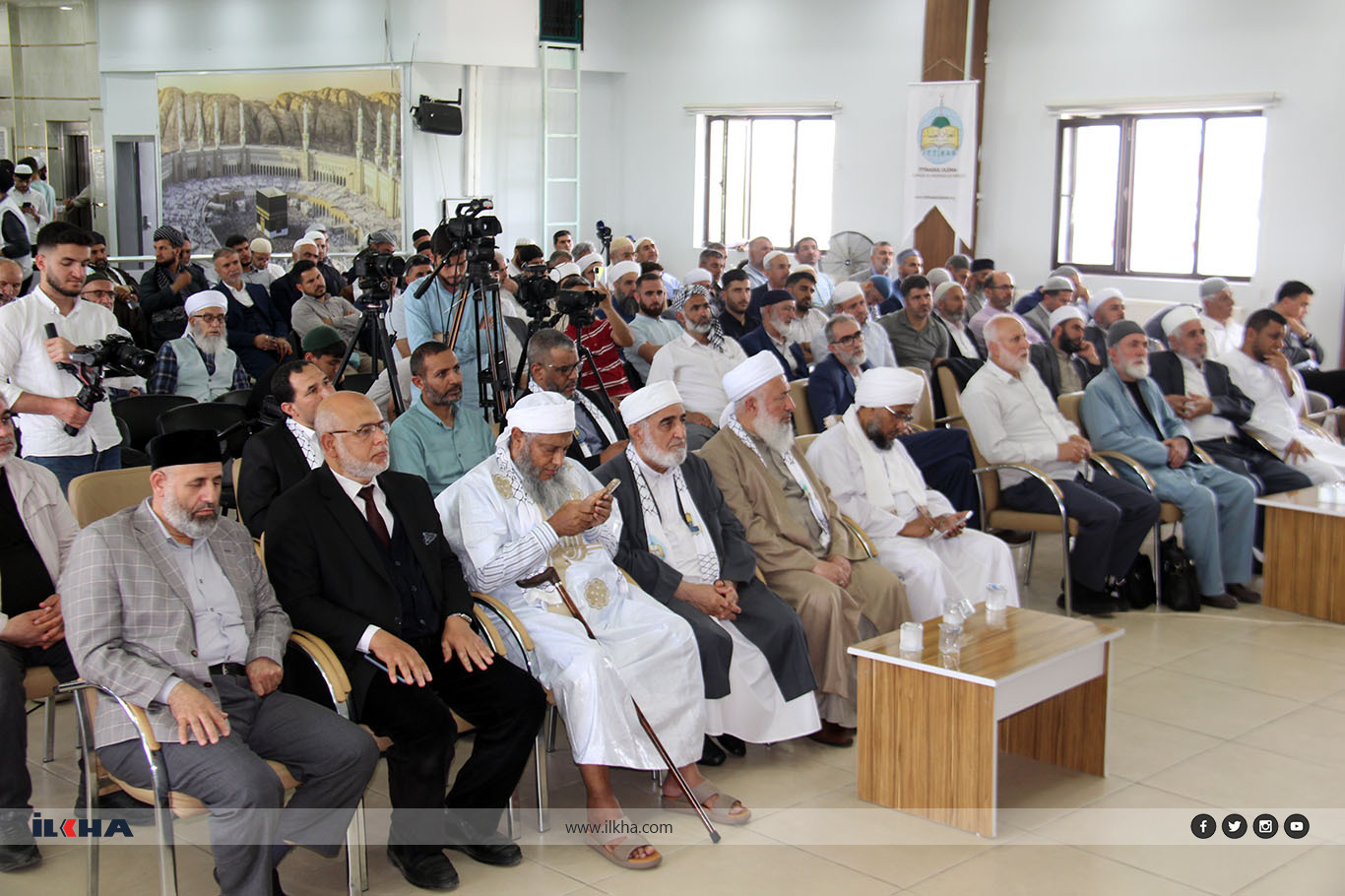The conference, titled 'The Responsibility of the Ulema in the Aqsa Flood,' brought together scholars from diverse geographical backgrounds to deliberate on the multifaceted challenges facing the Palestinian people. With attendees hailing from various corners of the Islamic world, the event provided a platform for robust discourse and strategic planning in support of Palestine's plight.
In his keynote speech, Sheikh Ed-Dedo underscored the profound significance of Al-Aqsa Mosque within Islamic doctrine. Drawing upon Quranic verses and prophetic traditions, he emphasized the sanctity of Jerusalem and its central place in the hearts of Muslims worldwide. He recounted the historical lineage of Palestine, tracing its sacred connection to Prophet Abraham and its enduring status as Islamic lands.
"Jerusalem and Masjid al-Aqsa hold a special place in the heart of every Muslim," Sheikh Ed-Dedo declared. "It is not merely a geographical location but a symbol of our faith, our history, and our identity. We cannot stand idly by while its sanctity is desecrated."
However, Sheikh Ed-Dedo did not shy away from addressing the harsh realities of the present-day Palestinian experience. He lamented the atrocities inflicted upon the Palestinian people throughout history, including the massacres perpetrated during the Crusades and the ongoing oppression under Zionist occupation. With palpable concern, he highlighted the dire circumstances facing Palestinians today, including displacement, violence, and economic hardship.
Moreover, Sheikh Ed-Dedo issued a resounding call to action, urging unity and solidarity among the Islamic Ummah in confronting the injustices faced by Palestinians.
"Our silence in the face of oppression is tantamount to complicity," Sheikh Ed-Dedo asserted. "We must stand united against injustice and advocate for the rights of the oppressed, regardless of their faith or nationality."
Central to Sheikh Ed-Dedo's address was a condemnation of the zionist regime's actions, which he characterized as antithetical to divine principles and detrimental to humanity at large. He decried the zionist entity's flagrant violations of Islamic teachings and its complicity in economic exploitation and social injustice.
"The Zionist regime's oppression knows no bounds," Sheikh Ed-Dedo declared. "It is incumbent upon us, as Muslims and as human beings, to challenge this tyranny and work towards a just and equitable resolution for the Palestinian people."
In conclusion, the conference served as a rallying point for Islamic scholars to reaffirm their commitment to the Palestinian cause and galvanize support for the beleaguered Palestinian population. Through scholarly discourse and strategic engagement, participants sought to mobilize global solidarity and advocate for tangible measures to alleviate the suffering of Palestinians and secure their rights to dignity, freedom, and self-determination. (ILKHA)






 Dünya
Dünya
 Dünya
Dünya
 Güncel
Güncel
 Güncel
Güncel
 Güncel
Güncel
 Güncel
Güncel
 Dünya
Dünya
 Dünya
Dünya
 Güncel
Güncel
 Ekonomi
Ekonomi





